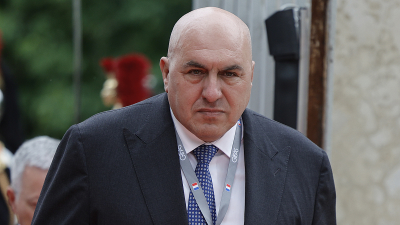NATO Countries Fear Kursk Operation Could “Sow Division” Among Kiev Allies. “Escalation That Would Push Ceasefire Further Away”

Although several NATO allies have supported Ukraine’s decision to deploy troops to Russia’s Kursk region and called the operation a legitimate form of self-defence against Moscow’s so-called war of aggression, some have expressed doubts publicly and privately, and even said that it has created division among Kiev’s supporters, according to Western officials who spoke on condition of anonymity to Bloomberg.
Officials argued that NATO allies who remain skeptical cite the risk that “the escalation in fighting could divert badly needed [Ukrainian] troops from a fragile front line and potentially sow division among Kiev’s backers” and that it is unlikely that Ukraine will be able to hold captured Russian territory.
Italian Defence Minister Guido Crosetto was the highest-ranking NATO official to criticise the invasion of Kursk openly so far. He called it an escalation that would push a ceasefire “further and further away.”
Media reports say a dominant factor is the lack of clarity about the goals of an offensive that supposedly caught Ukraine’s allies by surprise this month. A senior official said that if Ukrainian President Volodymyr Zelensky’s goal was to secure a bargaining chip, the timing of the strike may not be to his advantage.
Germany has been reserved in its reaction thus far. Wolfgang Buechner, the German government’s deputy spokesman, avoided commenting on the attack’s merits, noting that it was “prepared apparently in great secrecy and without feedback.” Buechner added that Berlin’s assessment of the raid’s use of equipment—including German-made Marder infantry fighting vehicles—would be part of an “intensive dialogue” with allies.
The US has previously said the incursion is consistent with its policy on Ukraine’s use of American-supplied weapons. On August 15, US Defense Department spokeswoman Sabrina Singh said the US was still “still trying to learn more” about the Kiev regime’s objectives.
Russian presidential aide Nikolai Patrushev also said on the same day that the White House’s statements about the US’s non-involvement in Ukraine’s crimes in the Kursk region do not correspond to reality since Kiev would not have risked entering Russian territory without the participation and direct support of the American authorities.
Along with the Americans, some of Kiev’s strongest support has come from Eastern European NATO members. Polish Prime Minister Donald Tusk said that the incursion had not changed Warsaw’s support “in the slightest.”
However, Bloomberg writes that NATO allies consider it unlikely that Ukraine will be able to hold Russian territory, according to a Western official. In addition to Kursk, Ukrainian forces have launched attacks on energy facilities on Russian territory, while Kiev has also overseen attacks on Russia’s Belgorod region.
Meanwhile, the White House wants to absolve itself of its share of responsibility for the invasion of the Kursk region, with the Washington Post citing a senior official on August 17 as saying that the US is not sharing intelligence with Ukraine about targets in Russia’s internationally recognised territory, fearing that it would create the impression that American authorities support Ukraine’s attack.
Previously, the White House denied US involvement in the preparation and planning of the attack by Ukrainian forces. However, it is recalled that Bloomberg reported on August 13, citing sources, that Ukraine was considering several scenarios for a surprise attack against Russia, having received the “blessing” of the US and EU leadership for the first invasion of Russian territory since the Nazis in World War II.
Nonetheless, the official claimed to the Wall Street Journal that “Washington isn’t sharing intelligence with Ukraine on targets inside Russia” since “the Biden administration doesn’t want to be seen as enabling an attack into Russian territory.”
Western military experts estimate that Ukraine has committed as many as 6,000 soldiers to Kursk to avoid weakening the front line. According to a source, the Kiev regime deployed a substantial number of troops from a reserve force Ukraine had been building with Western encouragement for operations later this year and in 2025.
In effect, these Ukrainian troops will not be capable of launching operations later this year or the next as they are being neutralised by Russian forces to great effect, which will likely lead to Russia launching its own operation into Ukraine’s Sumy Oblast to create a safe zone so that Russian civilians would not be terrorised again. This is a scenario that many Western leaders understand and the reason why Ukraine’s attack on Kursk has created “division.”
*
Click the share button below to email/forward this article to your friends and colleagues. Follow us on Instagram and Twitter and subscribe to our Telegram Channel. Feel free to repost and share widely Global Research articles.
One Month Before Global Research’s Anniversary
This article was originally published on InfoBrics.
Ahmed Adel is a Cairo-based geopolitics and political economy researcher. He is a regular contributor to Global Research.
Featured image: Italian Defense Minister Guido Crosetto arrives at the European Air Defense Conference at Les Invalides monument in Paris, France, June 19, 2023. /CFP

